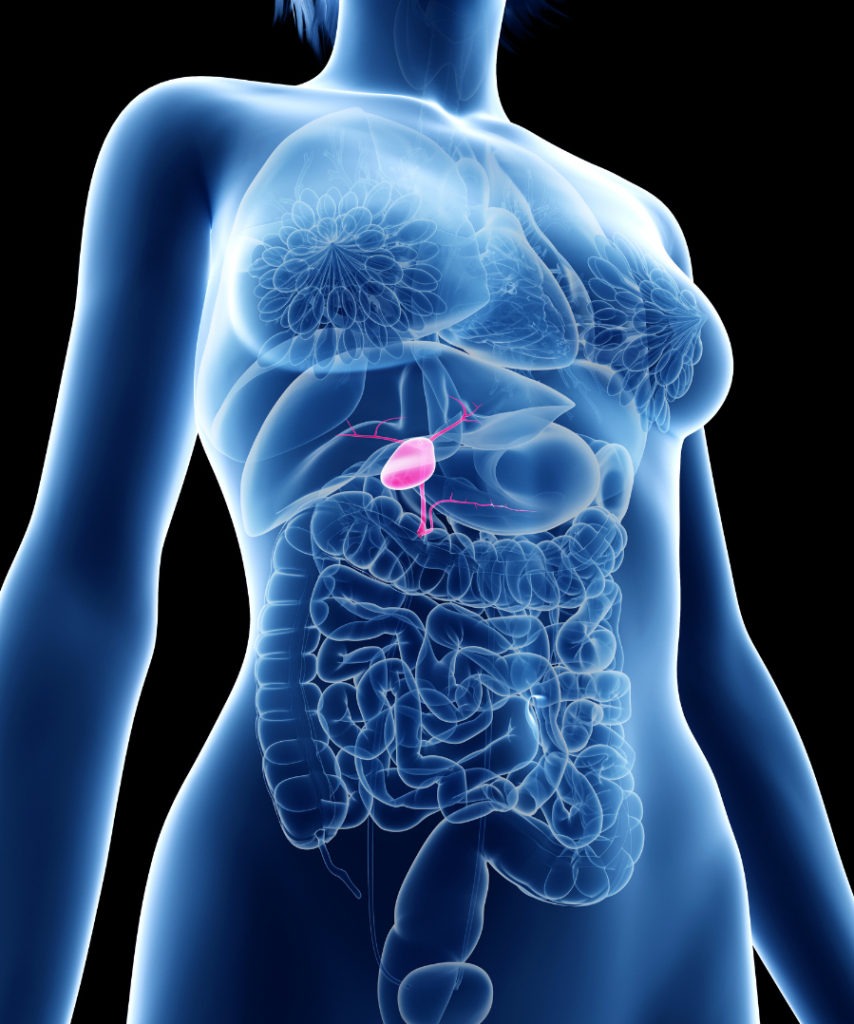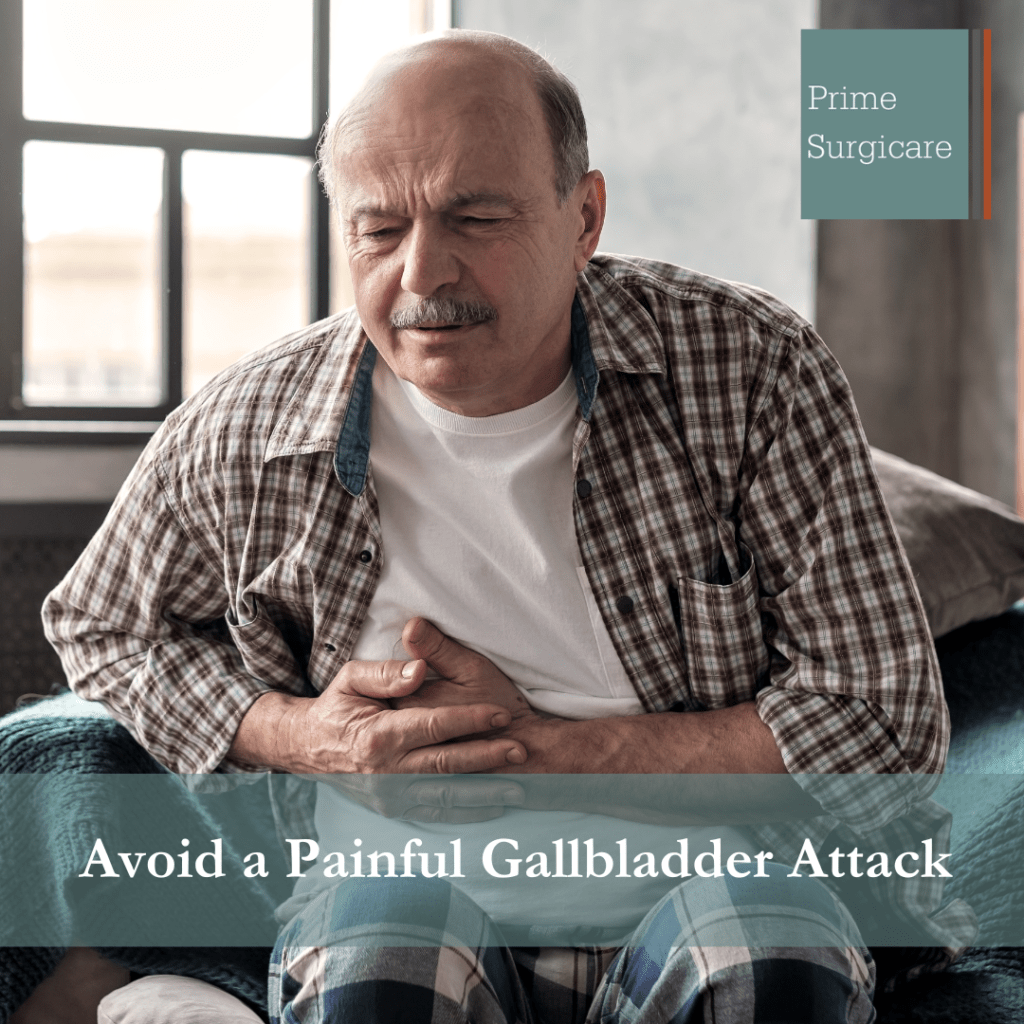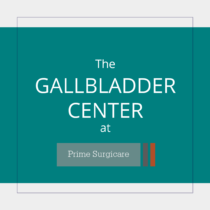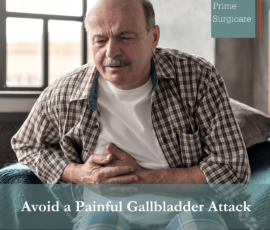
By Seun Sowemimo, MD, FACS, FASMBS
Gallbladder surgery is one of the safest and most common surgical procedures. Unless it’s causing problems, most people pay little or no attention to their gallbladders or what this organ does for the body. But if you experience pain from a diseased gallbladder or gallstones, it will quickly command your full attention.
A small organ located in the right upper abdomen under the liver, it stores some of the bile produced by the liver, which digests and absorbs the fats in the food that we eat. Gallstones sometimes form inside the gallbladder and block the outlet from while the bile is moved out, which can result in considerable pain. In some cases, the stones may move into the bile duct, causing jaundice or inflammation of the pancreas (pancreatitis).
If you are suffering from stones in the gallbladder, you may experience intermittent pain in the right upper abdominal region. The pain typically starts after eating and may cause nausea, vomiting or bloating. Fever may or may not be present. People who have severe symptoms from gallstones (usually diagnosed on an ultrasound) frequently have their gallbladder removed through a minimally invasive procedure called a laparoscopic cholecystectomy.
Prime Surgicare Medical Director, board-certified laparoscopic, bariatric and general surgeon Dr. Seun Sowemimo, explains
“Dr. Sowemimo removed my Gallbladder about a week ago. It was an easy and great experience as surgeries go. The staff at Prime Surgical was terrific! The Dr. and staff put my fears at ease and answered every question. They were patient with me and could not have been nicer. I highly recommend Dr Sowemimo and his entire staff. Great people!”
Len Marcu – December 2024
Gallstones are somewhat common. Up to 20 million Americans have gallstones, according to the National Institute of Diabetes and Digestive and Kidney Diseases (NIDDKD), but just 20% of these stones cause problems. Severe cases or larger stones can result in intense pain to the sufferer. However, the number and size of the stones do not appear to correlate with the severity of patients’ symptoms.

An inflamed gallbladder can be caused by gallstones, excessive alcohol use, poor nutrition obesity, rapid weight loss after weight loss surgery, infections, or tumors that cause bile to build-up. The inflamed and swollen walls can cause pain episodes lasting for days, resulting in the formation of scar tissue.
Dysfunctional gallbladder, or chronic gallbladder disease, is commonly caused by scarring from repetitive bouts of cystic duct obstruction and associated inflammation.
Am I Having Symptoms of a Gallbladder Attack?

Cholecystitis is the most common type of gallbladder disease, meaning “inflammation of the gallbladder.” It is most commonly caused by gallstones obstructing the ducts to the small intestine. Most gallbladder symptoms start with pain in the upper abdominal area, including:
- Severe pain in the abdomen or beneath the right shoulder blade
- Unexplained pain after eating or accompanying deep breathing
- Intermittent pains that feel dull, sharp, or crampy
- Chest pain, a sudden onset of heartburn or chronic indigestion
- Excessive gas, feeling overly full
- Uncharacteristic chills
- Tender abdomen, jaundice or discolored stool
In addition to upper right abdominal pain, cholecystitis carries a variety of symptoms, which can sometimes be managed with rest and antibiotics. Ultrasound, X-ray, CT scans or nuclear imaging are commonly used to diagnose a diseased gallbladder or gallstones. In many cases, minimally invasive, laparoscopic gallbladder surgery is the fastest solution to relieve pain.
What Are the Benefits of Laparoscopic Gallbladder Surgery?
- Four tiny scars instead of one large abdominal scar
- No hospital stay in routine cases
- Less pain, limited blood loss and no recurrence after surgery
- Significantly faster recovery time
Diet for a Healthy Gallbladder
Maintaining a healthy diet and weight go a long way in keeping the gallbladder healthy. By following a high-quality nutrition plan of plant-based proteins, fruits, veggies, lean meats and fiber, you’ll help avoid a gallbladder attack—as well as a host of chronic diseases.
Drinking plenty of water is also essential for maintaining the proper amount of water in the bile. Finally, avoid fatty, fried foods, and limit alcohol. Most importantly, if you experience stomach pain for over a few days, see a doctor to rule out any serious health complications.
Consistent and intermittent pain is the body’s way of telling you something isn’t right. Don’t ignore it because the sooner the issue is diagnosed, the quicker you’ll feel great again.
The Gallbladder Center at Prime Surgicare in Central New Jersey
 Surgeons at Prime Surgicare are highly experienced, U.S. board-certified and fellowship-trained. We perform simple and complex GI region surgeries weekly using the most advanced tools and techniques, including robotic surgery.
Surgeons at Prime Surgicare are highly experienced, U.S. board-certified and fellowship-trained. We perform simple and complex GI region surgeries weekly using the most advanced tools and techniques, including robotic surgery.
Trust the vast surgical expertise of Dr. Sowemimo, who will have you back on your feet safely and with as little pain as possible.
Dr. Seun Sowemimo is a board-certified and fellowship-trained general, laparoscopic and bariatric surgeon in NJ. He specializes in minimally invasive weight loss surgery and general surgery procedures, including diverticulitis, gallbladder and hernia conditions.
Call our friendly team at (732) 761-1740 to make a prompt telehealth or in-person appointment to discuss your surgical need. Prime Surgicare has offices in Old Bridge, Toms River, Jackson and Freehold Township, New Jersey.
